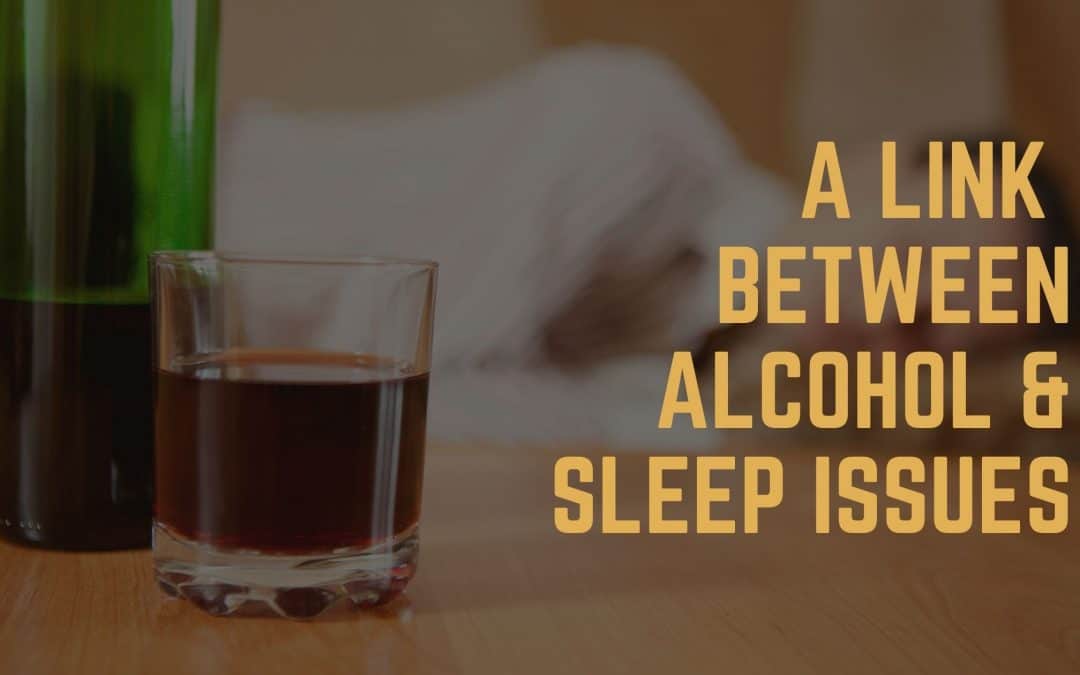Consumption of alcohol, particularly in excess, is linked to poorer sleep quality. Alcohol affects sleep by initially helping individuals fall asleep faster due to its sedative effects, but it ultimately disrupts sleep quality by altering sleep patterns, leading to shorter sleep duration and disrupted rest. Alcohol is a central nervous system depressant which means that it slows down neurological functions including brain activity. Extensive studies show that alcohol use can take a toll on sleep, contributing to sleep disorders like insomnia and sleep apnea.
Alcohol is often misused as a sleep aid, highlighting its short-term benefits versus long-term consequences for sleep quality.
Impact of Alcohol Consumption on Sleep
Alcohol enters the bloodstream after consumption and enzymes in the liver metabolize it. This is a gradual process which means that when people drink alcohol, it remains in the bloodstream, impacting them in a variety of ways, including exacerbating sleep disorders like snoring and obstructive sleep apnea. The effects this has typically depend on numerous factors including a person’s age, size, drinking patterns, etc. But studies have shown that drinking alcohol can delay or disrupt sleep quality and duration throughout the night as the liver processes alcohol.
Various sleep stages are impacted by this which affects overall sleep. There are four stages of sleep which constitute a sleep cycle, a person typically experiences 4-6 sleep cycles through the duration of a night. The sleep stages are:
Stage 1: the falling asleep, or dozing off stage which is the first 1 to 5 minutes. The body begins to wind down and relax, the brain starts to slow down. Alcohol helps people fall asleep faster due to its initial sedative effects.
Stage 2: the brain and body relax further; body temperature, heart rate, and breathing slow down. According to the Sleep Foundation, a person usually spends half of their sleep in this stage. Alcohol induces deeper sleep in the first half of the night but leads to disruptions in the second half of the night.
Stage 3: also known as the deep sleep stage and involves being in a state of deep relaxation: muscles, heart rate, and breathing, brain activity is further slowed. Alcohol can initially increase the amount of slow wave sleep but chronic use leads to a decrease in slow wave sleep.
Stage 4: the last stage of the sleep cycle is REM sleep. Brain activity reawakens, nearing the same levels as when one is actually awake. Though the brain is reactivated, the body remains relaxed. The eyes and breathing muscles also reawaken as this stage is also characterized by rapid eye movements (REM). Alcohol consumption can delay or suppress stage 4, REM sleep.
Alcohol being a sedative means that people can enter into deep sleep quicker and easier (as alcohol helps slow things down). But this quickness can actually create imbalances between the stages of sleep which should last for a specific amount of time. This can lead to poor quality of sleep, shorter duration, disruptions while sleeping, waking up, etc. Consistent alcohol consumption can continue to impact sleep and contribute to chronic sleep issues.
Link Between Alcohol & Sleep Quality
According to the American Sleep Association, 50 to 70 million adults in the U.S. have a sleep disorder. Experts in the field of sleep medicine explain that alcohol disrupts sleep patterns and hormonal balance, negatively impacting the body’s natural sleep processes. Alcohol can exacerbate existing health conditions and sleep disorders, leading to various sleep disturbances. Alcohol impacts the sleep-wake cycle by disrupting levels of adenosine, which plays a critical role in maintaining this cycle. The most common sleep disorders are insomnia and sleep apnea. Alcohol can contribute to these sleep issues in a variety of ways:
Insomnia
It is the most common sleep disorder, insomnia affects nearly 30% of adults and is characterized by difficulty initiating and/or staying asleep. Rapid eye movement (REM) sleep, which is critical for memory consolidation and cognitive processes, can be impaired by alcohol consumption. Insomnia can be infrequent or chronic. Because alcohol affects sleep quality, the sleep-wake cycle, and specific sleep stages, it can suppress REM sleep (stage 4) and disrupt sleep, leading to experiencing insomnia symptoms. This causes people to be excessively tired, irritable, and experience difficulty concentrating the following day.
Sleep Apnea
Involves abnormal breathing during sleep. It is characterized by pauses in breathing which happens recurring throughout sleep. This impacts how much oxygen the body is receiving. Obstructive sleep apnea, the more common type, occurs when tissues in the back of the throat collapse, obstructing the airway. Central sleep apnea is caused when the brain cannot effectively communicate to the muscles that control breathing. Studies have suggested that alcohol contributes to the throat muscles relaxing which can create blockages that prevent air from freely traveling. This exacerbates the abnormal breathing and can produce snoring as well.
The relationship between sleep and alcohol is significant, especially regarding sleep apnea. Alcohol consumption before bed can exacerbate sleep apnea as it relaxes muscles in the airway, making it more prone to obstruction during sleep. This exacerbates the abnormal breathing and can produce snoring as well.
Alcohol, especially when consumed excessively, can significantly impact sleep. To reduce the toll it can have, reduce consumption to a moderate amount and also avoid drinking right before bed. This gives the body more time to metabolize the alcohol while you are awake compared to during sleep which can create disruptions that wake you up. The Sleep Foundation recommends not drinking alcohol at least four hours before going to bed.
If you’ve had difficulty sleeping, perhaps integrating these practices can help! At Enticare, we provide services to address a variety of sleep disorders, including sleep apnea. Contact us today to learn more.

